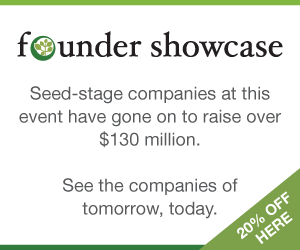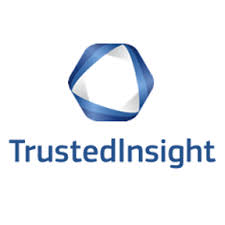Ambri, a four-year-old, Cambridge, Ma.-based maker of liquid-metal battery technology, has raised $35 million in Series C funding to build a commercial-scale factory. New investors in Ambri’s round include the Swiss insurance company
Building Insurance Bern, and
KLP Enterprises (the family office of Karen Pritzker and her husband, Michael Vlock). Earlier investors
Bill Gates and
Vinod Khosla also participated in the round, which brings the amount of equity Ambri has raised to date to $50 million. GigaOm has much more
here.
Ayla Networks, a 3.5-year-old, Sunnyvale, Ca.-based company whose cloud connectivity software helps manufacturers turn appliances and more into intelligent devices, has raised $14.5 million in Series B funding from Cisco Investments andSAIF Partners. Other participants in the round included the International Finance Corporation, a member of the World Bank Group; Linear Venture; SJF Ventures;Crosslink Capital; and Voyager Capital.
CloudGenix, a year-old, Santa Clara, Ca.-based networking company that helps companies manage multiple types of apps over multiple types of devices and connections, has raised $9 million in Series A funding from Charles River Venturesand Mayfield Fund.
Edgewater Networks, a 12-year-old, San Jose, Ca.-based company that makes enterprise session border controllers to connect, optimize, and secure IP-based communications, has raised $5 million in debt financing from Eastward Capital. The company has raised at least $12 million in debt and equity in recent years, shows Crunchbase.
Evrything, a three-year-old, London-based software company whose applications help companies connect their devices to the Web, has raised $7 million in Series A funding from Atomico, Dawn Capital, BHLP, and Cisco Systems. The company had raised an undisclosed amount of seed capital led by Atomico in 2011.
Flipps Media, a three-year-old, Uniondale, N.Y.-based company whose app enables users to stream media to televisions without additional devices, has raised $2.4 million from Earlybird Venture Capital and earlier investors, including investor Tim Draper.
LeadiD, a three-year-old, Ambler, Pa.-based software company that makes tools for buyers and sellers of online customer leads, has raised $7 million in Series A funding from Comcast Ventures and Tribeca Venture Partners. Genacast Ventures, which had led LeadiD’s seed funding, also participated in the round. LeadiD has raised $9.7 million altogether.
Liquid Data Intelligence, a months-old, Lisbon, Portugal-based software analytics service that promises to help mobile app developers and marketers optimize conversion rates by personalizing their apps for individual users in real-time, has closed a $1 million seed round from Faber Ventures and Portugal Ventures.
Moveline, a 2.5-year-old, Las Vegas-based company whose users video their belongings and are then given quotes from moving companies, has raised $3 million in Series A funding led by ff Venture Capital, with participation from Vegas Tech Fund and Quotidien Ventures, along with earlier investors.
OGSystems, a 10-year-old, Chantilly, Va.-based company that specializes in agile software development and systems engineering for the Department of Defense, the intelligence community, and commercial markets, has raised an undisclosed amount of funding from General Catalyst Partners.
Otonomy, a 5.5-year-old, San Diego-based company that’s developing and commercializing treatments for diseases of the inner and middle ear, has raised $49 million from a line list of investors. Its new backers included Jennison Associates,Perceptive Advisors, the Federated Kaufmann Funds, Ally Bridge Group, certain private funds advised by Clough Capital Partners, and other unnamed institutional investors. Earlier investors also participated, including OrbiMed Advisors, Novo Ventures, TPG Biotech, Avalon Ventures, Domain Associates, RiverVest Venture Partners, Aperture Venture Partners, and Osage University Partners. The company has raised $144 million to date.
The RealReal, a three-year-old, San Francisco-based, online high-end consignment shop, is raising a big new round, according to an SEC filing that shows the company has raised $20.3 million as part of a $31 million round. The company had previously raised $21.5 million from investors, including Novel TMT Ventures, Canaan Partners,Greycroft Partners, Panarea Capital, InterWest Partners, Sukhinder Singh Cassidy, Suzy Welch, and e.ventures.
Trippy, a three-year-old, Manhattan Beach, Ca.-based online question-and-answer platform that connects travelers, disclosed yesterday that it has raised $3.5 million in Series A funding in a round that closed last year. The funding was led by eVentures, which was joined by True Ventures and Sequoia Capital. TechCrunch has more here.
Vhoto, a two-year-old, Seattle, Wa.-based company whose app uses algorithms, computer vision and machine learning to allow iPhone users to pull still shots from video, has also announced a $2.4 million dollar seed round from Atlas Venture, Polaris Partners, and the company’s cofounder and chairman, Hugh Crean. (Crean, by the way, worked previously as an EIR at General Catalyst Partners and was earlier the CEO of Farecast.com. Vhoto’s CEO, Noah Heller, was most recently an EIR at Atlas.)
ZeroFox, a year-old, Baltimore-based security startup that helps companies identify, manage and mitigate social media-based cyber threats, has raised $10.3 million in Series A funding led by New Enterprise Associates. Other participants in the round included Genacast Ventures, Core Capital, and numerous angel investors from the security industry, including former Symantec CEO Enrique Salem.
—–
New Funds
Benhamou Global Ventures, a Silicon Valley based early-stage venture capital firm founded by former 3Com CEO Eric Benhamou, is announcing the first close of its newest fund, BGV II LP, a vehicle that will be investing just less than $100 million in seed and early-stage companies that focus on everything from enterprise technology — including security, cloud-based services, Web scale infrastructure, mobility — to Internet-connected devices. The firm has already made one investment from the new fund in Qubell, a two-year-old, Menlo Park, Ca.-based “platform as a service” company. (GigaOm had written about Quebell here.)
Cisco Investments, the corporate venture capital arm of Cisco, announced yesterday that it will pour a fresh $150 million into funding early-stage companies, especially those focused on big data and analytics; the Internet of Things; connected mobility; storage; silicon; the content technology ecosystem; and India innovation. The new capital folllow’s Cisco’s previously announced $100 million commitment to startups focused on the Internet of things. The venture arm currently has stakes in more than 80 companies and 35 funds as part of a $2 billion portfolio.
Not new but a new development: Industry Ventures, the 14-year-old, San Francisco-based secondary shop, is assuming the daily management of Square 1 Venture 1, L.P., a 2008-vintage venture capital fund-of-funds. Square 1 is a Durham, N.C.-based specialty bank that provides loans and other services to venture firms and their portfolio companies. Square 1 suggested it was selling its portfolio to focus exclusively on that banking business.
Lerer Ventures looks to be raising a fourth, $50 million fund, judging by a new SEC filing. Interestingly, the fund is titled Lerer Hippeau Ventures IV, possibly signaling a branding change three years after Eric Hippeau, the former CEO of Huffington Post, joined the firm. (Before Huffington Post, which sold to AOL in 2011, Hippeau was a well-known venture capitalist with Softbank Capital.) Lerer closed its third fund with $36 million in 2012.
Lightstone Ventures, a two-year-old, early-stage life sciences firm launched by health-care investors from Morgenthaler and Advanced Technology Ventures, has closed its debut fund at $172 million, it’s announcing this morning. The team consists of Mike Carusi and Jean George of ATV (which won’t raise another fund), and Hank Plain and Chris Christofferson of Morgenthaler. Lightstone invests in early-stage biotechs and medical device makers, and has already backed three companies, including Catabasis, the Cambridge-based startup developing triglyceride-lowering and anti-inflammatory drugs. Lightstone has offices in Palo Alto, Boston, and Boulder. Xconomy has much more here.
Passport Capital of San Francisco looks to be raising some new capital, judging by an SEC filing that does not list a target. Passport is a multistrategy hedge fund that was founded by John Burbank in 2000 and invests in agriculture, basic materials, energy, financial services, health care, capital markets and the Internet, among other things. In March, for example, Passport and Blackrock led a $100 million round for the big data company Hortonworks at a valuation of more than $1 billion. Last month, Passport’s filed its first Form D of 2014, showing that the company recently raised $27.2 million from investors.
—–
IPOs
Box, the Los Altos, Ca.-based online storage company, may delay its eagerly awaited IPO until late May, according to Quartz’s sources, who cite market volatility as the driver. The offering is expected to raise as much as $250 million in the public markets. (Tweeted Box’s famously funny CEO Aaron Levie last night, in apparent frustration over the report: “‘Quiet periods are so much fun,’ said no one ever.”)
—–
Exits
Check, a 6.5-year-old, Palo Alto, Ca.-based whose app that helps users pay bills and monitor bank accounts and credit cards, is in talks with Intuit about being acquired for more than $350 million, according to WSJ sources. The outlet says the discussions are early and that a final agreement might not be reached for another week or two. Check has raised $47 million from investors, including Menlo Ventures, Morgenthaler Ventures, and Pitango Venture Capital.
PlayFirst, a nearly 10-year-old, San Francisco-based mobile game developer, has been acquired by the 13-year-old, publicly traded game maker Glu Mobile for roughly $12 million in stock. PlayFirst had raised $37.7 million over the years, including from Trinity Ventures, Rustic Canyon Partners, DCM, and Mayfield Fund.
—–
People
Fortune takes a look at 10 founding teams and the valuations of their pre-IPO companies — which have now reached into the multiple billions of dollars.
Eat your heart out, Roman Abramovich. Your yacht looks like a trailer park dumpster next to this baby.
——-
 Dave McClure once followed Y Combinator’s moves closely, looking to emulate parts of its structure. Now, the famed, nine-year-old tech accelerator looks to be playing catch-up with Dave McClure.
Dave McClure once followed Y Combinator’s moves closely, looking to emulate parts of its structure. Now, the famed, nine-year-old tech accelerator looks to be playing catch-up with Dave McClure.




